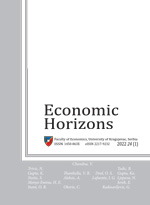The role of the government in the promotion of corporate social responsibility
Mladen Krstic1 and Ksenija Dencic Mihajlov2
1 Maksi-Co doo, Aleksinac, The Republic of Serbia
2 Faculty of Economics, University of Nis, Nis, The Republic of Serbia
The role of the Government in the implementation of the Corporate Social Responsibility (CSR) concept into the business policy in the field of recycling in the Republic of Serbia is analyzed in this paper, with a special overview of the End-of-Life Vehicle (ELV) and Waste Electrical and Electronic Equipment (WEEE) recycling. The research has shown that quite different government approaches to these two independent waste streams are the most responsible for the differences in the amount of the recycled products in the analyzed period. The fact that the so-called self-regulatory CSR observed in the recycling of the used cars in the previous period caused a substantial reduction in the volume of official car recycling is pointed out herein. This indicates that, although car recycling is a financially profitable investment, it is not enough to motivate potential investors to carry out this process through official waste streams in compliance with regulations. On the other hand, in the field of e-product recycling, CSR facilitated by the government has further motivated investors, resulting in an increased amount of recycled e-products.
Keywords: corporate social responsibility, the government, incentives, recycling
JEL Classification: M14, Q53




